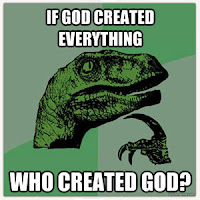I was watching X-Men: First Class the other day and something stood out that I thought might help in our discussions of morality. The two main characters (Charles Xavier and Erik Lehnsherr) are mutants- humans with special abilities. Charles can read and control minds. Erik can manipulate metal via magnetism. Both of these are very powerful abilities demonstrated throughout the series. In the series, the X-Men series story goes that there is a growing fear of mutants among the normal populace and an effort by some government officials to eliminate them. Ultimately it ends up in a war between normal humans and mutants. However, Erik and Charles end up on opposite sides. Erik (as Magneto) wishes to eliminate the lesser evolved humans (ones without mutations), while Charles (as Professor X) fights to preserve humanity.
But what caught my attention was something very subtle: a miscommunication between Erik and Charles is actually responsible for them being on opposite sides of the war, yet both believing that they are right and the other is wrong.










